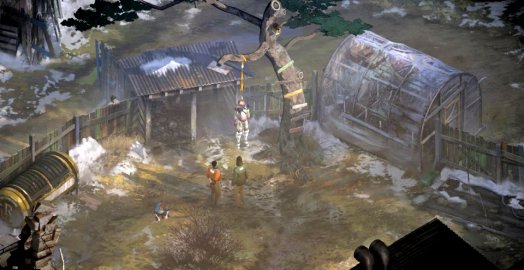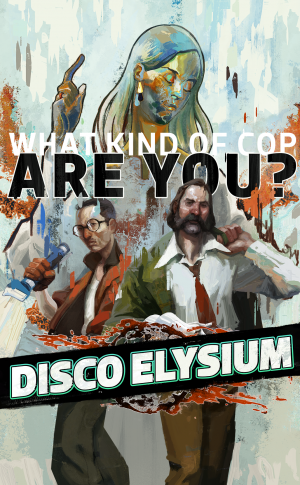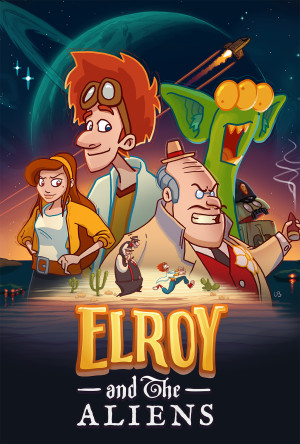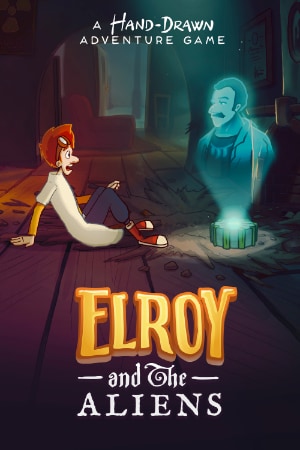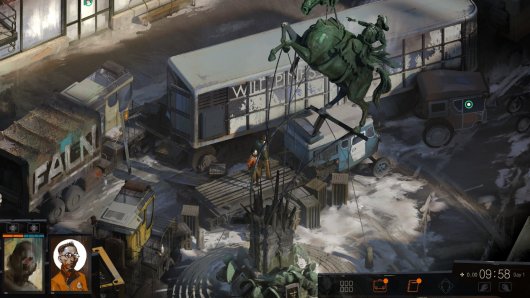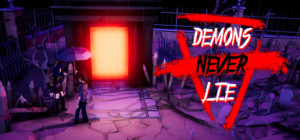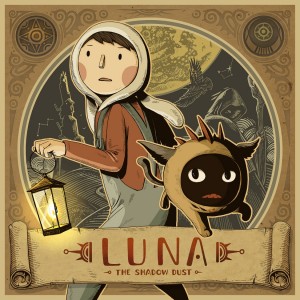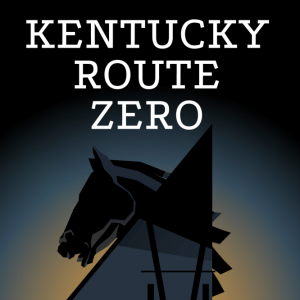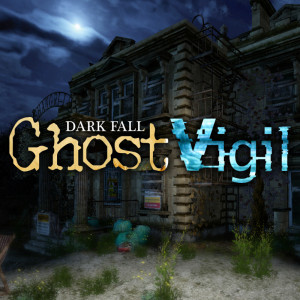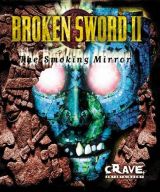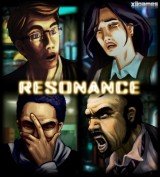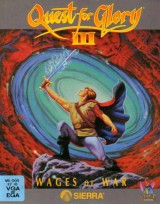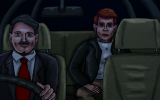Review for Disco Elysium
Game information
Adventure Gamers Awards
Note: Since time of writing, the game has been updated and rereleased as "The Final Cut" with full voice acting and additional quests with new locations and characters. This review is based solely on the original version.
“Cop suffers final heart attack.” These words filled the screen after my first few minutes with Disco Elysium. Game over. I killed the main character by turning a light on – too much stress for his frail, drug-addled body to take, like it was just waiting for a little nudge to fall over dead. No, this game isn't a power trip, and [spoiler redacted] is no hero. In fact, he doesn't even know who or what he is. But you can make things right. This is a tale of redemption, after all. It's up to you to rehabilitate your down-on-his-luck detective and set a good example. Or is this an account of the nihilistic nature of humanity, as you plummet further into a chemically altered state of mind? No matter the demeanor, political views, and questionable judgment you indulge, ZA/UM’s thoroughly impressive narrative role-playing adventure gives you every opportunity to express yourself as you see fit, ensuring every player ends up with their own unique cop and gameplay experience.
Despite my premature demise, I want to clarify that Disco Elysium is very approachable. Core gameplay focuses on interrogation and investigation of a murder case, with an emphasis on player choice. Go where you want, say what you want, belt out some karaoke, preach fascist ideals, shout “Disco inferno!” after roundhouse kicking a man unconscious. Your decisions and their results are woven into the action seamlessly, sometimes bearing less immediate but far-reaching effects. A hybrid throwback to an older age of RPGs and point-and-click adventures, there are ample skills to unlock and quests to resolve, but with no combat encounters to hinder your progression. If you're looking for story, you're in luck – so long as you like to read, because the volume of text is monstrous and scarcely accompanied by voice-over. But what it tells is a continually absorbing, intensely human experience, in all its complexity – intimate, sorrowful, humorous, and a little insane. All you need is the craving for a deep narrative and the willingness to surrender to its eccentricities. I mean, this is a game where your fractured mind is the chattiest character.
You have the option of starting with one of three archetypes or making your own custom character. From there you can adjust the values of four defining attributes: Intellect, Psyche, Physique, and Motorics. These encompass such practical options as Logic, which improves your deductive ability and lets you notice things you might not have otherwise, while Authority grants you natural dominance over those around you, and Reaction Speed helped me dodge a bullet, literally. Where things get really interesting is with some of the oddball skills like Encyclopedia and how it injects an extra dose of lore at every turn. Esprit De Corps can take you on “flash sideways” tangents, where you witness what your fellow officers are up to at that very moment. Then there's my personal favorite, Inland Empire, the embrace of madness in a way, where imagination takes precedence over reality and you communicate with inanimate objects. With a total of twenty-four skills to pick from, the number of combinations is enough to send the mind reeling.
You guide your detective around isometric maps with a single-click (or double-clicking to make him run). The entire game can be played using just a mouse, if you're so inclined, but there are some useful keyboard shortcuts for various menus. More importantly, I would urge you to hold down Tab periodically whenever exploring, as doing so handily highlights points of interest. Besides clues, you'll be stuffing your inventory with clothes, tools, and other curiosities. When you inevitably raid your partner’s vehicle, be sure to snatch up everything from his toolbox so you'll be prepared for all kinds of situations. For instance, coming up against a locked door isn't an issue with a prybar in hand. Apparel can be bought or found, and each article bears unique passive bonuses to your skills. In other words, you can wear clothes to suit the occasion or buff up your favorite play style. But honestly, doesn't that trench coat make you look like a true hard-boiled cop? And doesn't that necktie just speak to you? Actually, with Inland Empire, it does!
In the harbor city known as Revachol, the scars of civil war are still visible on the stone-laden streets. Racial tensions are high and a union strike is underway. Most people have no love of the law in these parts, and that means you. But not even amnesia or poor physical health can stop you from the case. A man of unknown identity hangs lifeless behind the Whirling-In-Rags, the humble motel where you've rented out a room. The body has festered for days, barely preserved by the frost-bitten climate. Assisted by the cool-headed Kim Kitsuragi, your goal is to track down the murderer, and like a proper noir mystery, clues and suspects have a habit of interconnecting into a vast web.
A few dozen characters populate Revachol. The sullen and secretive Klaasje, the begrudging cafeteria manager Garte, manipulative union boss Evrart, troubled pre-teen Cuno, the kindly cryptozoologists Lena and Morell, and a, uh... creepy “Crab Man.” Really too many indelible characters to list here. They show astonishing depth through personal ideologies, which culminate in comprehensive statements about the human condition. The aforementioned Kim Kitsuragi is your moral compass, often apologetic of your wild antics. One of my favorite parts of the game is earning his trust and feeling like a duo from a buddy cop film. But hey, you can always disappoint Kim instead by committing theft or, say, punching an obnoxious kid in the face. Ultimately, it's how fully formed everyone feels that is so gratifying, no matter how you approach things. Even your necktie has its own character arc!
Kim isn't the only one who interjects conversations with his input, since your own shattered mind has a lot to say about the world. Current matters, fashion advice, how much of a superstar you are – your subconscious thoughts are just full of opinions. What’s more, every upgradable skill has a voice pulling you in their direction, sometimes even arguing amongst themselves about the best course of action. Putting points into a skill will make its particular voice ever more conversational. Even outside of dialogue sequences, a bubble may appear above your head to indicate an inner voice waiting to be released. Click that bubble and let the thoughts pour out with delicious absurdity.
The equivalent of traditional quests are simply called “tasks” here, which automatically take space in your journal as conversations introduce actionable info. Tasks significant to the case involve performing a field autopsy on the murder victim, tracking down your missing gun and badge, interviewing eye witnesses, and so on. An almost overwhelming number of secondary objectives are also on offer, from helping some kids start a nightclub to tracking down a mythical creature that probably doesn't even exist. Besides being valuable in their own right, the less important tasks often give a greater context to your case. Either way you'll earn experience points, and with a hundred of those you are granted a skill point to allocate however you please.
Throughout your investigation you must maintain your Health and Morale, meters that represent the amount of physical and emotional damage you can take, respectively. I stress again that you won't be dealing with any kind of combat, as special actions are handled entirely through text options and then enacted in brief animations. Success entirely depends on automatic dice rolls, preceded by a chance of success in the form of a percentage. Failing certain “checks” can result in injury, such as when running full speed into a door to break it down or otherwise straining your detective's ragged body, while more psychological examples would be embarrassing yourself or dredging up depressing feelings.
Running out of either Health or Morale ends in a game-over (not a big problem since you can save anywhere). This suggests that players practice at least a little caution when making decisions, but it isn't so rampant as to deter experimentation. When you sustain damage, you can make use of replenishing items found tucked around the world, which can be applied from your inventory. There are also numbers representing your current stock of healing items in the lower left side of the screen that can be clicked to restore yourself more efficiently. And if you find yourself in need of a greater pool of Health and Morale, putting points into the Endurance and Volition skills will do just that. Finally, if you don't have the items to patch yourself up, you can always rest when night comes and start the next day in peak condition. Whatever peak condition is for a walking corpse of a man.
Along the way you will come up against many skill checks when contemplating potential actions, appearing in two colors in text windows: White and Red. The former are those that can be retried if you improve the skill being tested, or by obtaining a modifier. For instance, simply having ammonia in your inventory increases your odds of passing the Endurance check when approaching the victim's putrid corpse, allowing you to stomach the stench and proceed with your examination. Red checks, on the other hand, can only be attempted once. You may be inclined to reload the game after failing a check in order to get the best result, but I would urge you to deny the impulse. In general, Disco Elysium gives you interesting and often humorous outcomes to failure, and there are always alternate solutions.
Further enriching the experience is the Thought Cabinet. Occasionally your brain will propose “thoughts” – psychological breakthroughs just waiting to happen. They have hidden requirements, but you will assuredly uncover many simply by interacting with people. For example, in trying to recall your amnesiac detective's past – a family, an address, something that can lead him back to who he once was – you gain the “Lonesome Long Way Home” thought. You can opt in or out of these freely, adding them to your cabinet menu, but unlocking their benefits costs a skill point. Thoughts involve “research time” as well, during which you may be subject to penalties on some of your precious skills, like how the “White Mourning” thought lowers your Authority by a point. Once enough time has elapsed, though, you get to reap the savory bonuses, in this case an increased cap on all your Motorics skills as well as the ability to zoom the camera out further than normal.
Obtaining money to buy equipment and pay for a place to sleep can be tough since you don't have a reliable source of income, so make sure to scour your surroundings. Another option is to embrace your inner “Hobocop” and collect empty bottles to exchange for some coin. If you don't mind the indignity, you can even beg for money from those better off than you. If you're feeling the itch to partake in a bit of illegal activity outside Kim's disapproving gaze, you can head out alone after he has turned in for the night. I may have taken this very opportunity to steal a fancy pair of armored boots (shhh). But be aware that most NPCs become unavailable after hours, so many tasks can only be tackled in the day.
The in-game clock doesn't move outside of conversations, unless you sit at a bench or read a book – both useful options for speeding up Thought Cabinet research. Don't fret too much about running out of time to solve the case, as you're given ten in-game days and can easily cross off most if not all of the tasks you unlock in about half that. Which isn't to say Disco Elysium is a short game, because I ended up spending over forty hours on my first playthrough. Of course, play time will vary greatly depending on how much side content you engage in, but a good deal of it actually feels like an extension of the main storyline, netting you more clues to narrow your leads. Frankly, it's all worth the investment. Plus there are some tasks and possibly even characters you won't see in one playthrough, given all the branching paths the skill checks and dialogue choices take you down, so you'll have more than enough reason to keep coming back to role-play your way through new scenarios in different ways.
Though the camera is locked in an isometric perspective, the game has been modeled in 3D and then textured with a painterly look. It's very soft on the eyes, swathed as it is in muted colors. Entries in the Thought Cabinet are pieces of a larger, gorgeous surrealist painting. As for Revachol itself, European-style architecture and lo-fi technology co-exist beneath a thin layer of snow that evokes desolation. A pervasive sadness comes through in the voice acting too, even when masked with sarcasm or flickers of optimism. You won't hear much more than a few opening lines of spoken dialogue from each character, but what's here excellently establishes a tone to keep in mind while you read. The soundtrack by English rock band British Sea Power fades in and out with an airiness that's difficult to describe. Chords, keyboards, drones, chants, and whatever else drift like snowfall that lays over the setting until the two are inseparable. In many respects, Disco Elysium's audio-visual presentation is understated, yet elegant and immersive.
Perhaps the greatest asset of the interactive medium is the element of discovery. With players able to approach an open investigation almost entirely at their discretion, as is the case here, the sense of achievement and ownership is tremendous. The drive to turn the next corner, learn more about the outstanding cast of characters, to squeeze every last drop of remarkably written content from the digital city of Revachol is escapism of the highest order. Disco Elysium now inhabits a place in my mind where I store the most valued experiences my video game addiction has given me, and I can only encourage you to play it as well – preferably right now. With patches consistently rolling out to improve even minor performance issues and fix spelling and grammatical errors, there's really nothing left to criticize. This deranged detective role-playing adventure is an instant classic and an irrefutable example of the power of story in video games.




